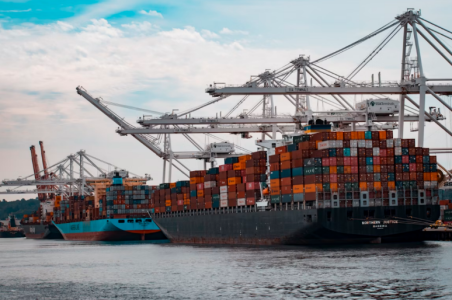Shipments from over 30 countries restricted to the US amid growing concerns
- Replies 0
Global supply chains are shifting once again, and this time the ripple effects are hitting everyday shoppers.
For years, online orders under a certain threshold slipped through customs quietly, arriving at doorsteps without added cost or delay.
Now, a long-standing trade policy has been overturned, leaving both foreign postal services and American buyers bracing for new hurdles. The first consequences have already started to appear, with entire countries cutting off shipments.
More than 30 nations have now suspended or restricted parcel deliveries to the United States, citing uncertainty over new tariffs that begin on August 29.
The Universal Postal Union, a United Nations agency coordinating international mail, confirmed that at least 25 of its members communicated emergency pauses.
Many postal operators issued public statements of their own, halting certain services while scrambling to adjust systems.
These suspensions come after the U.S. government moved to sunset the “de minimis” exemption, a decades-old rule that once allowed packages worth less than $800 to arrive duty-free.

Among the countries that confirmed suspensions are Australia, Germany, Japan, Italy, Spain, France, South Korea, Switzerland, Taiwan, and India.
In Europe, major networks including Deutsche Post in Germany and France have temporarily stopped moving business parcels bound for US addresses.
Japan Post announced its halt on August 25, though officials stressed that alternative methods would remain available.
South Korea’s post added that customers could still ship through its partnership with UPS, while other carriers weighed partial exceptions.
Also read: Act fast: How tariff changes could affect your online shopping and the loophole to save money!
Commercial logistics firms are also adjusting to the new landscape. DHL in Germany confirmed it stopped accepting business parcels via the postal network as of August 23, citing the complexity of new US tariff rules.
FedEx’s Australian division announced on August 26 it would continue transporting packages, offering a lifeline to exporters caught in the transition.
New Zealand Post initially suspended shipments but resumed service on August 28 after securing a new commercial channel. The fluid situation underscores how quickly operators are rewriting policies to keep goods flowing.
At the center of the turmoil is the de minimis exemption, first established under Section 321 of the Tariff Act of 1930.
The rule allowed millions of low-value packages to bypass duties and taxes, saving time for customs agents and money for consumers.
In 2024 alone, the value of these shipments surpassed $1.36 billion, with over four million such parcels processed every single day.
Roughly half of these packages came from China, including a significant share from fast-fashion giants Shein and Temu, which relied on the loophole to keep prices low.
The Trump administration argued the system was being exploited by foreign retailers at the expense of domestic businesses.
Also read: Secondhand fashion may outsmart tariffs—and save your wallet
Earlier this year, exemptions for China and Hong Kong were eliminated, and by May 2 the impact was immediate as warehouses reported package backlogs.
Officials then delayed the broader policy change until late summer to avoid a repeat of those disruptions.
Now, with the August 29 deadline looming, both foreign postal systems and U.S. consumers face the reality of higher costs, slower deliveries, and more paperwork at the border.
Read next: Are your online shopping costs about to skyrocket? What you need to know before the August 29 law hits

Would you be willing to pay more for overseas orders if it meant avoiding delays—or will these new barriers make you reconsider buying from international retailers altogether?
For years, online orders under a certain threshold slipped through customs quietly, arriving at doorsteps without added cost or delay.
Now, a long-standing trade policy has been overturned, leaving both foreign postal services and American buyers bracing for new hurdles. The first consequences have already started to appear, with entire countries cutting off shipments.
More than 30 nations have now suspended or restricted parcel deliveries to the United States, citing uncertainty over new tariffs that begin on August 29.
The Universal Postal Union, a United Nations agency coordinating international mail, confirmed that at least 25 of its members communicated emergency pauses.
Many postal operators issued public statements of their own, halting certain services while scrambling to adjust systems.
These suspensions come after the U.S. government moved to sunset the “de minimis” exemption, a decades-old rule that once allowed packages worth less than $800 to arrive duty-free.

Shipments from over 30 countries restricted to the US amid growing concerns. Image source: Andy Li / Unsplash
Among the countries that confirmed suspensions are Australia, Germany, Japan, Italy, Spain, France, South Korea, Switzerland, Taiwan, and India.
In Europe, major networks including Deutsche Post in Germany and France have temporarily stopped moving business parcels bound for US addresses.
Japan Post announced its halt on August 25, though officials stressed that alternative methods would remain available.
South Korea’s post added that customers could still ship through its partnership with UPS, while other carriers weighed partial exceptions.
Also read: Act fast: How tariff changes could affect your online shopping and the loophole to save money!
Commercial logistics firms are also adjusting to the new landscape. DHL in Germany confirmed it stopped accepting business parcels via the postal network as of August 23, citing the complexity of new US tariff rules.
FedEx’s Australian division announced on August 26 it would continue transporting packages, offering a lifeline to exporters caught in the transition.
New Zealand Post initially suspended shipments but resumed service on August 28 after securing a new commercial channel. The fluid situation underscores how quickly operators are rewriting policies to keep goods flowing.
At the center of the turmoil is the de minimis exemption, first established under Section 321 of the Tariff Act of 1930.
The rule allowed millions of low-value packages to bypass duties and taxes, saving time for customs agents and money for consumers.
In 2024 alone, the value of these shipments surpassed $1.36 billion, with over four million such parcels processed every single day.
Roughly half of these packages came from China, including a significant share from fast-fashion giants Shein and Temu, which relied on the loophole to keep prices low.
The Trump administration argued the system was being exploited by foreign retailers at the expense of domestic businesses.
Also read: Secondhand fashion may outsmart tariffs—and save your wallet
Earlier this year, exemptions for China and Hong Kong were eliminated, and by May 2 the impact was immediate as warehouses reported package backlogs.
Officials then delayed the broader policy change until late summer to avoid a repeat of those disruptions.
Now, with the August 29 deadline looming, both foreign postal systems and U.S. consumers face the reality of higher costs, slower deliveries, and more paperwork at the border.
Read next: Are your online shopping costs about to skyrocket? What you need to know before the August 29 law hits
Key Takeaways
- More than 30 countries, including Australia, Germany, Japan, France, Spain, South Korea, and India, have suspended or restricted U.S.-bound parcel shipments.
- The suspensions follow the end of the “de minimis” exemption, which had allowed duty-free imports of packages valued under $800.
- In 2024, de minimis shipments totaled over $1.36 billion in value, with China and retailers like Shein and Temu dominating the volume.
- Shipping companies including DHL, FedEx, and Japan Post are adjusting services, but confusion and higher costs are expected for American consumers.






